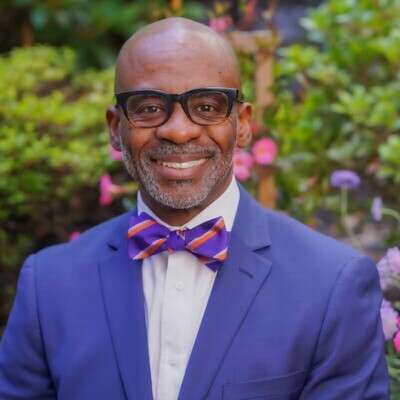William J. Farrell of Boyden Greater China is quoted extensively in this article by AmCham Taipei on how the role of HR management is expanding.
Human Resource executives are increasingly expected to be a key part of their companies’ overall strategic planning and policymaking.
The responsibilities of human resources managers have been evolving for some time, gradually shifting from a merely administrative function to a far more strategic business role. While traditional human resource management focuses on recruiting and hiring top talent and ensuring that they have the compensation, benefits, and training they need for success, strategic resource management expands upon these primary functions.
Strategic resource managers align the core HR responsibilities with the overall organizational goals of a company. They do this by increasing interaction with other departments within an organization in order to ensure that employees are equipped to meet specific departmental needs and contribute to overall company success.
To attract, train, and retain these employees, HR managers now look after a wide range of tasks including marketing, recruiting, and talent management. Above all else, HR managers must develop a keen understanding of company culture, values, and goals in order to help foster a positive work environment for both managers and staff.
To meet the demands of this expanding role, HR managers now require higher levels of training both in school and on the job. “As the size of HR departments grows, the responsibilities of HR managers are increasing as well, and companies are looking for highly qualified candidates for HR management positions,” says Chen I-heng, a professor at the Institute of Human Resource Management of National Sun Yat-sen University in Kaohsiung. “Without a master’s degree in HR management, becoming a professional HR manager is quite difficult.”
Interest in the HR management master’s program at his Institute has risen steadily, says Chen. Currently, the two-year program at his Institute accepts 80 students per year. Many other universities in Taiwan also offer strong graduate programs in Human Resources, including Taipei’s National Chengchi University and Taoyuan’s National Central University.
But extensive academic training is not enough to ensure success for HR managers. “Master’s programs in Human Resource Management always focus on teaching general courses that train students in core HR skills such as recruiting, evaluation, training, and HR strategy,” Chen explains. “These courses, although they provide students with extensive knowledge of Human Resources, fail to provide them with industry-specific skills.”
Chen, whose own research focuses on HR management in the service industry, notes that the broad sweep of most university programs in the HR field “has always been a problem, because HR managers should know and understand the industry they work in.” In the hotel industry, for example, he notes that HR managers have long struggled to develop suitable training programs for their staff, since much of what they learned in class may be “completely impractical” in their particular industry.
In contrast, William Farrell, Managing Partner for the Greater China region at Boyden Executive Search, emphasizes the importance of finding HR managers with a strategic skill set. “While having very technical, industry-specific knowledge is essential, I don’t think that’s the main challenge,” he says. “When searching for a senior HR executive, companies are looking for somebody who has broad and in-depth knowledge of key human resource functions but can also think and operate on a more strategic level. Especially for more senior positions, companies are a bit more willing to look at somebody who is not specifically from their industry.”
Once companies find candidates who can fulfill these strategic roles, teaching them industry-specific skills is a necessary but manageable task, Farrell says. But balancing the need for industry knowledge with the importance of a more strategic business skill-set is always a challenge.
Strategies across generations
“Whether you’re thinking about a head of human resources for Taiwan or a head of human resources for Asia Pacific, for someone to be successful in that role they’re going to have to have a wide range of attributes – an understanding of local regional culture, the core HR skill set, and ideally a business- and strategy-oriented mentality,” notes Farrell. The key challenge, then, is finding these well rounded, adaptable, and strategically oriented HR managers.
“Identifying someone who has that very business-oriented strategic mindset plus a firm grasp of the rest of the key functions of human resource management is quite tough,” Farrell notes. The candidates that most often meet these complex criteria “are probably a bit younger than the hiring firm would expect,” he says. In general, the younger talent tends to be more strategically inclined, whereas the older managers are more familiar with the traditional administrative responsibilities of HR management.
Taiwan’s shift from a manufacturing to a service-based economy further contributes to the success and suitability of younger HR managers. “The way you manage a service-oriented business as opposed to a manufacturing business is quite different, particularly in regard to HR issues,” explains Farrell. “In big service organizations you’re not worried about labor relations very much, and outside a factory environment you’re not as worried about environmental safety. The training issues and the career development issues for those working in a factory as opposed to a bank differ dramatically.” The younger managers therefore have an advantage over the more senior HR people who grew up in a manufacturing environment and have far less exposure to the service economy.
On the other hand, younger managers may lack the maturity and experience required for high-level leadership roles, Farrell notes. Another challenge is that strategically minded people in the early stages of their career development are rarely attracted to HR management. “The shift in functions of HR management is something that began in the West with multinational corporations and is slowly trickling into Asia,” Farrell explains. As a result, many people in Taiwan still look on HR as a primarily administrative function.
The question of age plays into other aspects of HR management as well. “The generation gap complicates talent usage in Taiwan,” says Cindy Chen, the Taipei-based Regional Head of Adecco, the global human-resources firm. “Some companies will have four generations working together. So say your CEO is from the boomer generation, in his 50s or 60s. He will have a much different leadership style than employees from the young generations.”
Among these four generations, the younger talent is said to be quickly rising in the ranks of HR management, outpacing the progress of the middle-aged generation just before them. In addition to being more strategically inclined, the younger generations have the additional advantages of greater familiarity with social media and other aspects of the digital economy, plus a more international outlook due to more travel and study abroad.
The middle-aged bracket – those who began their careers around the onset of the 2008 economic crisis – has remained on the lower rungs of the management ladder, Cindy Chen notes. “In the five or six years after the economic crisis, there were very few opportunities available for young talent to gain promotions or crucial skills training.” As a result, today’s leaders in HR management tend to be at both ends of the age spectrum, with a large gap in the middle.
Cindy Chen draws a sharp distinction between these two talent pools. The older members, from the boomer generation, prioritize hard work, hierarchy, and respect. By contrast, individuals from generations X and Y stress independence, efficiency, and flexibility in their work environment. Thus modern HR managers, whether old or young, must now learn to bridge the gap between these two generations that have dramatically different outlooks, work ethics, and leadership styles in order to effectively understand and communicate with all members of the company. “Developing strategies to bridge this generational gap will allow HR managers to successfully lead organizational change,” she says.
Talent management
Sanny Chiu, former Human Resources director for Abbott Taiwan, notes that talent acquisition has been a crucial component of the expanded HR management role. Talent turnover is high in the increasingly fast-paced and globally competitive economy, and companies must work harder to recruit and retain talent. “In the past few years we confronted serious competition from the China market because of the compensation gap,” she says. “Particularly for employees above middle management, we had to adjust and readjust salary structuring a few times a year. Normally it was only a yearly review and adjustment if necessary, but in the past years we had to review frequently and track salaries closely in order to retain talent. As a result, HR management needed to be equipped with skills to facilitate career development and global assignment opportunities.”
Chiu also notes that HR managers had begun to shift their strategy from training employees internally to recruiting more outside candidates. “Though we conduct general management courses for our high-potential talent, oftentimes after attending these programs and receiving on-the-job training talent would then be targeted by headhunters or even directly by competitor companies,” she says.
With the growing influence of digital marketing and multiple networking channels, retaining talent has become particularly challenging for Taiwan’s numerous small and medium enterprises and even lesser-known larger companies. “International companies have a much easier time finding talent because they have advertising on multiple channels – LinkedIn, Facebook, and so on,” says Chiu. “Smaller companies who may not have the resources for multi-channel digital advertising will find it much more difficult to attract talent.”
Consequently, marketing has become a major component of HR recruitment methods. “HR needs to know where and how to sell their company in order to attract talent, how to balance internal needs among different generations, and how to guarantee good career paths for their employees. These are all huge changes in HR management,” notes Adecco’s Chen.
These changes all fall under the umbrella of talent management, one of the primary strategic components of the expanded HR management profession. “Talent management wasn’t something we really heard that much about before,” explains William Farrell. “Often you’d hear someone say they had headcount responsibilities, which meant they were responsible for keeping track of how many people they had working for them and possibly doing some projections. But today talent management is far more about organizing a sustainable recruiting network, retaining talent, and projecting longer-term human resource needs.”
Successful talent management requires creative and strategic thinking, qualities that National Sun Yat-sen University’s Chen says have become ever more important for human resources management. In Taiwan’s increasingly entrepreneurial and innovation-driven economy, HR managers must come up with creative strategies to manage fast-paced companies with diverse business models. They must constantly be assessing employee needs, boosting employee retention, and balancing employee-employer relations within a range of flexible business models.
To handle this complex task, HR Managers must be attuned to core company values as well as the company’s rapidly transforming future goals. “Especially for high-tech industries, which are always upgrading, HR managers must be very creative, very innovative people who can quickly catch market trends, and adapt as innovation drives company changes,” Professor Chen concludes.
Though high-tech industries demand exceptionally creative and flexible HR leadership, modern day HR managers, regardless of industry, are expected to approach their role with an innovative and strategic mindset. They must be flexible and quick to adapt to their wide range of responsibilities, well trained in HR fundamentals, and adept at attracting talent and bridging the gap between diverse demographics.
This article originally appeared on AmCham Taipei's website.




